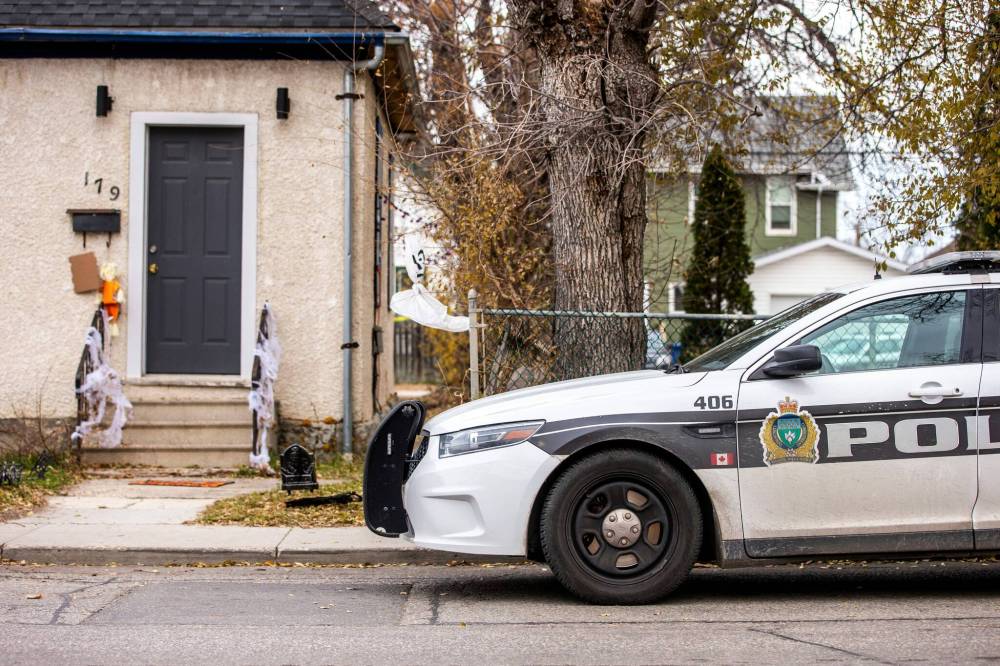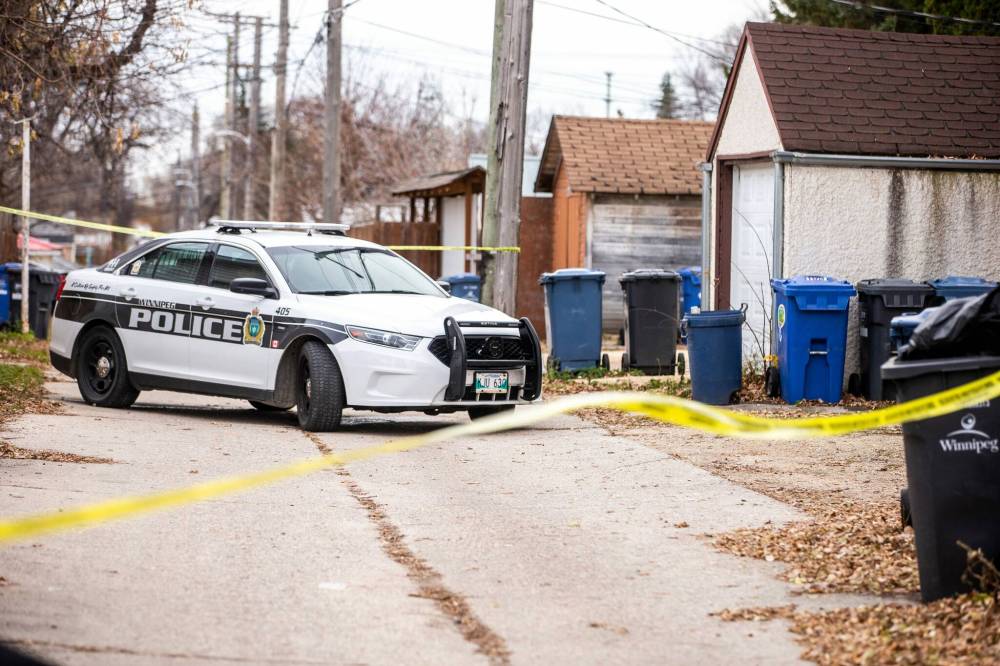City records 44th homicide, matching highest-ever total
Advertisement
Read this article for free:
or
Already have an account? Log in here »
To continue reading, please subscribe:
Monthly Digital Subscription
$0 for the first 4 weeks*
- Enjoy unlimited reading on winnipegfreepress.com
- Read the E-Edition, our digital replica newspaper
- Access News Break, our award-winning app
- Play interactive puzzles
*No charge for 4 weeks then price increases to the regular rate of $19.00 plus GST every four weeks. Offer available to new and qualified returning subscribers only. Cancel any time.
Monthly Digital Subscription
$4.75/week*
- Enjoy unlimited reading on winnipegfreepress.com
- Read the E-Edition, our digital replica newspaper
- Access News Break, our award-winning app
- Play interactive puzzles
*Billed as $19 plus GST every four weeks. Cancel any time.
To continue reading, please subscribe:
Add Free Press access to your Brandon Sun subscription for only an additional
$1 for the first 4 weeks*
*Your next subscription payment will increase by $1.00 and you will be charged $16.99 plus GST for four weeks. After four weeks, your payment will increase to $23.99 plus GST every four weeks.
Read unlimited articles for free today:
or
Already have an account? Log in here »
Hey there, time traveller!
This article was published 31/10/2022 (1134 days ago), so information in it may no longer be current.
A man assaulted in West Elmwood early Monday died in hospital, becoming the 44th person slain in Winnipeg since January, which matches the highest yearly number recorded in the city’s history.
Winnipeg police officers were called to the 100 block of Johnson Avenue West, just east of Henderson Highway, at about 2:30 a.m. for a report of an injured man.
The officers found the man unresponsive near a home and gave him medical care before he was taken to the hospital in critical condition, and later pronounced dead.

Winnipeg police spokesman Const. Jay Murray confirmed the victim had been assaulted, but would not reveal how he had been hurt.
“It’s still pretty early in the investigation… our investigators are hard at work on this,” he said.
On Monday afternoon, Winnipeg police identification unit officers moved in and out of a home’s backyard, while police cruisers were parked on Johnson Avenue West and in the lane behind the street, where the yards of three homes were blocked off with yellow crime-scene tape.
A 67-year-old man who has lived near the scene for 27 years said he was awakened at about 2 a.m. by the sound of police pounding on his neighbour’s door.
“Then they went through, with flashlights down here and all around,” said Zig, who didn’t want his last name used, gesturing towards the back lane.
“A big police presence up and down the back lanes all day… cruisers and detective cars all day — usually you see one or two every day, today I saw thirty.”
The victim’s name and age have not yet been released as his next of kin had not yet been notified early Monday, Murray said.
The homicide unit is investigating, and has asked anyone with information that could help to call 204-986-6508 or Crime Stoppers anonymously at 204-786-8477.
There were 44 homicides in 2019, the last occurring on Dec. 27.
This year’s number is of obvious concern to police, Murray said.
“That’s a lot of pain to families, members of the community, people who knew these victims. On the other side, it’s required a lot of work, homicide investigations tend to be very resource-intensive, starting from the initial (officers) that are dispatched,” he said.
“It’s been very taxing on our service and we still have two months to go — we don’t know what that will bring, but certainly, the number is very concerning.”

University of Manitoba criminologist Frank Cormier cautioned that although the high number is concerning and sad, it’s not necessarily indicative of a trend.
Statistically, homicide remains rare in Winnipeg and Canada broadly — usually less than half of one per cent of all violent crime in a year, he said.
“One homicide is too many, we don’t want to see any. The effects are devastating and terrible for many people any time there is a homicide,” he said.
Cormier differentiated “true first-degree murders” that are planned and deliberate and gang-related killings, from other “chaotic” slayings tied to disputes stemming from alcohol and drug intoxication and disputes in friend, family or romantic relationships.
“The typical Winnipeg homicide is relatively normal people, who are usually in some sort of desperate, unfortunate circumstance who are under the influence of something, and they lash out,” he said.
The high rate this year could be tied to lingering COVID-19 pandemic effects such as increased social isolation, reduced income and traumatic events leading to tension and anger and increased alcohol and drug use, he said, adding the increased use of firearms in assaults is also a factor because guns are more likely to kill.
erik.pindera@freepress.mb.ca
Twitter: @erik_pindera

Erik Pindera reports for the city desk, with a particular focus on crime and justice.
Our newsroom depends on a growing audience of readers to power our journalism. If you are not a paid reader, please consider becoming a subscriber.
Our newsroom depends on its audience of readers to power our journalism. Thank you for your support.
History
Updated on Tuesday, November 1, 2022 9:05 AM CDT: Adds related posts.








